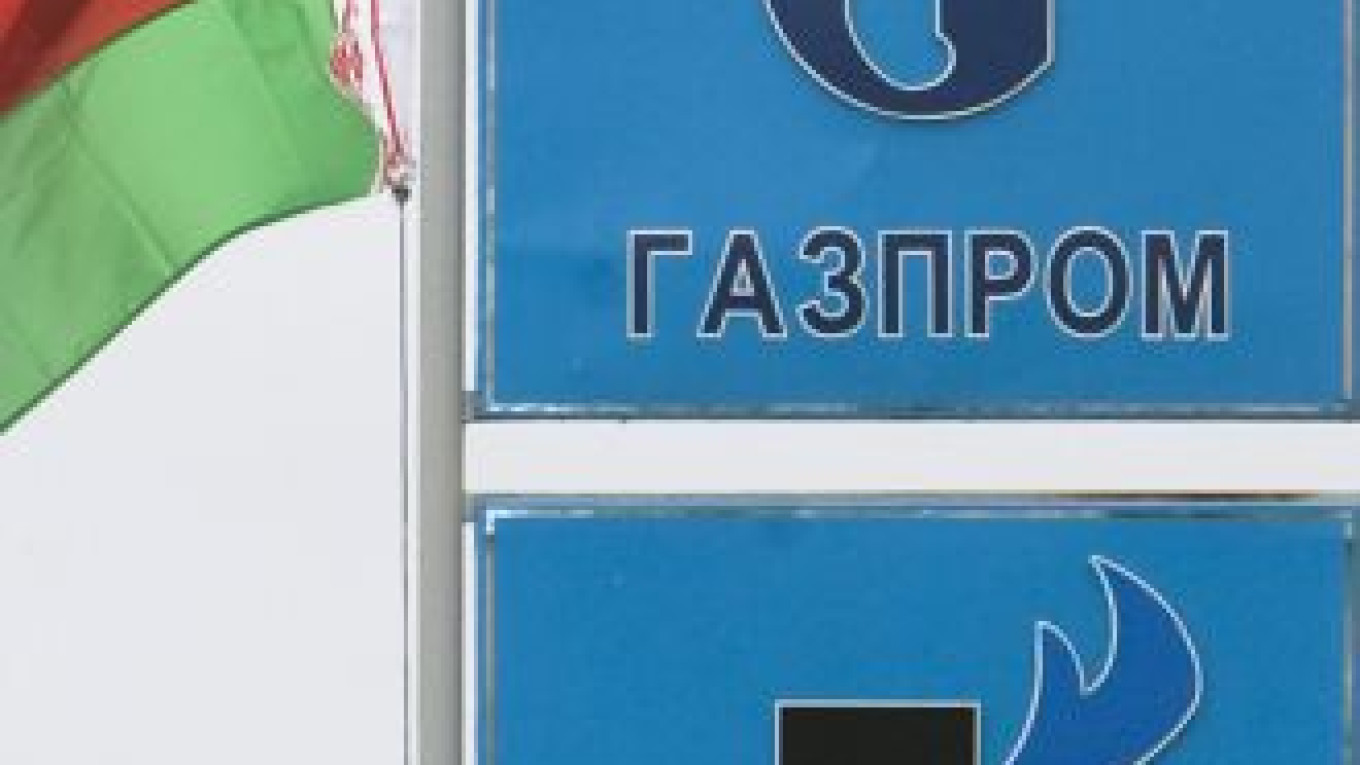Belarus threatened on Wednesday to halt all Russian oil and gas flows across its soil to Europe if Moscow does not repay a debt for gas transit, raising the stakes in a dispute that the EU said was an attack on the whole bloc.
"I demand that Gazprom pay $260 million to Beltransgaz by 10:00 tomorrow," First Deputy Prime Minister Vladimir Semashko said. "If it is not done, we will be forced to stop providing services for all hydrocarbon transit."
Beltransgaz, the country's gas infrastructure company, is half-owned by Belarus and half by Russian gas export monopoly Gazprom.
Semashko said Belarus had paid all its outstanding debt to Gazprom of $187 million for gas deliveries in January to April, which sparked the conflict when Gazprom demanded repayment last week and began to gradually reduce supplies to Minsk.
Belarus borrowed $200 million to make the payment, he said.
Gazprom “must see the money” before lifting gas supply reductions to Belarus, spokesman Sergei Kupriyanov said, commenting on reports that the country paid off its debt.
The company acknowledges that it owes Minsk money for gas transit but says Belarus has effectively blocked payments.
Gazprom initially reduced supplies to Belarus by 15 percent on Monday, then decreased them by another 15 percent the following day and then by 60 percent Wednesday. It warned Belarus that it would eventually cut the deliveries by 85 percent if it refuses to pay off its debt.
The European Union said Lithuania was receiving 40 percent less gas than usual because of the dispute, and Poland said it saw a brief fall in gas deliveries as well, but Russia's top gas customer, Germany, was still unaffected.
"This is not only a problem for this one member state, it is an attack against the whole EU," European Energy Commissioner Guenther Oettinger told reporters.
"The government of Belarus wants to integrate Europe in their problems, and that is not OK."
Belarussian President Alexander Lukashenko said Tuesday that the two nations were facing a full-scale "gas war."
Russia, the world's largest energy exporter, supplies Europe with 25 percent of its gas needs, with four-fifths of that flowing via Ukraine and one-fifth via Belarus. Russia also supplies about 1 million barrels per day of oil to Germany's and Poland's refineries via Belarus.
Ukraine has already promised to ship more Russian gas to Europe to help Moscow plug the potential gap in supplies via Belarus, while analysts have said the impact on consumers should not be big, given low gas consumption in Europe at the moment.
Gazprom's stock closed down 1.6 percent in London, in line with the generally weaker Russian shares.
Once-close ties between Russia and Belarus have been increasingly strained as Lukashenko has sought to use Russia's eagerness to maintain an ally on its Western flank to pressure Moscow not to scrap longstanding economic subsidies.
"Moscow is trying to keep Belarus in its orbit by gas politics by hitting Lukashenko's social contract, in which he delivered stable prices and living standards in return for power," said Jana Kobzova, an analyst at the European Council on Foreign Relations.
Belarus is to hold presidential elections next year, and Lukashenko, who has ruled the country since 1994 in what analysts describe as a Soviet authoritarian style, has pledged to raise state wages and salaries.
Belarus pays the lowest price among Russian gas customers and has bridled at recent increases, saying it should pay less for oil and gas if Moscow is serious about close ties. Lukashenko has courted the West and sought other energy sources.
Relations have soured further since Russia and Belarus failed to agree on unified customs rules and Lukashenko gave refuge to ousted Kyrgyz President Kurmanbek Bakiyev, despite Moscow's support for the new Kyrgyz leadership.
Previous pricing disputes with Minsk led to oil supply cuts, with Poland and Germany being affected most because they receive large volumes of crude and gas from Russia via Belarus.
A similar standoff with Kiev halted much larger Russian gas supplies across Ukraine for almost two weeks in January 2009, leaving many Europeans without fuel during a bitter cold snap.
(Reuters, AP, Bloomberg)
A Message from The Moscow Times:
Dear readers,
We are facing unprecedented challenges. Russia's Prosecutor General's Office has designated The Moscow Times as an "undesirable" organization, criminalizing our work and putting our staff at risk of prosecution. This follows our earlier unjust labeling as a "foreign agent."
These actions are direct attempts to silence independent journalism in Russia. The authorities claim our work "discredits the decisions of the Russian leadership." We see things differently: we strive to provide accurate, unbiased reporting on Russia.
We, the journalists of The Moscow Times, refuse to be silenced. But to continue our work, we need your help.
Your support, no matter how small, makes a world of difference. If you can, please support us monthly starting from just $2. It's quick to set up, and every contribution makes a significant impact.
By supporting The Moscow Times, you're defending open, independent journalism in the face of repression. Thank you for standing with us.
Remind me later.


